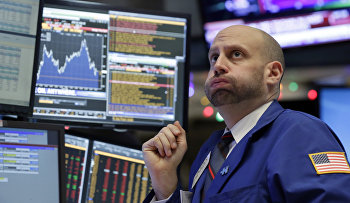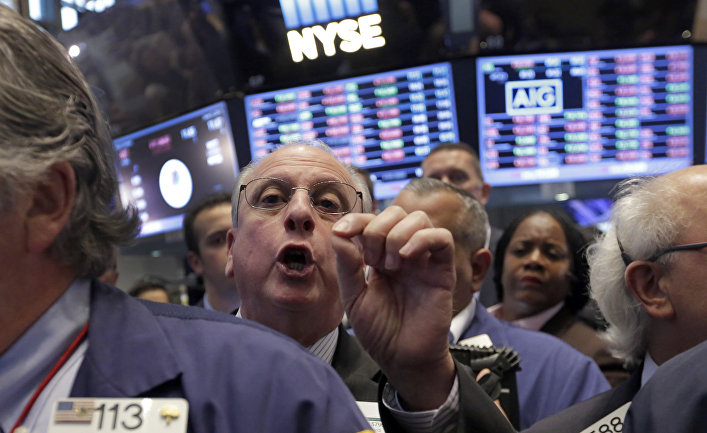The meltdown in the high-yield bonds market had to inevitably hit the US bonds market. Investment-grade bonds (LQD-ETF and similar bonds) collapsed to their lowest levels for two years on Monday. The problems kicked off when Third Avenue Management refused investors permission to take their money out of their bankrupt unit trust fund, Third Avenue Focused Credit Fund. The reality is that investors had put money into non-liquid assets – and as a result, were not able to get their money back, as became very clear to them. The Fund had been the owner of a major bonds portfolio company, with credit ratings below investment grade.
The high interests on 'junk' bonds inevitably entail the higher levels of risk associated with investment in this kind of bond. So when Third Avenue Management became unable to service their issues, the company naturally withheld payouts from owners, in order to avoid its own losses. The management company issued a statement saying that they would not be selling the Fund's assets at current prices, since these prices were considered undervalued. The Wall Street Journal said that the block on money withdrawals from the Fund was a “highly unusual” event for the US financial sector, and mentioned that it highlights increased liquidity difficulties in the high-yield bond segment.
The bond market funding for US HY energy companies has completely dried up pic.twitter.com/tQoy90DRQK
— Eurofaultlines (@Eurofaultlines) December 19, 2015
Naturally all investors 'reacted' to the problems – even the owners of low-income yet stable investment-grade bonds. Thus Lucidus Capital Partners has already entirely liquidated its bonds portfolio, and is ready pay out $900 million dollars to its investors. This means that the problems were confined to a specific range of funds.
Major investors are now doing what they can to calm the market. “Everyone is asking exactly the same questions right now, and that's expected – they're worried if the infection will spread further, or something similar” says Todd Rosenbluff of S&P Capital IQ. Goldman Sachs is recommending the purchase of high-income bonds and banker's bonds. However, other experts take exception to this – believing that major companies have vested interests in giving this kind of advice to investors, since it helps them to shift their own holdings of what investment companies want to be rid of.
The situation in the corporate debt market in the USA is really quite alarming. The collapse of prices for oil and gas companies, especially in the shale and hydrocarbons sectors has led to very severe problems for many companies, and dozens have already gone out of business, commented broker Robert Novak, head of the Analysis Department at MFX Capital, and senior MFX analysis consultant. Following this a number of high-yield bonds have collapsed – whose spread in relation to treasuries shot up between 350 and 400 points. Of course, this couldn't fail to affect the rest of the corporate bond market overall, especially when we factor in the expected rates shift by the Fed, which might kick in on their next sitting on 16 December.
Chart: The spread between the lowest and the highest rated HY bonds (dispersion) at the highest level since 2009 — pic.twitter.com/VimeLtmMLi
— SoberLook.com (@SoberLook) December 18, 2015
“What's going on on the US high-yield bond market is a routine elimination of redundant operations” said Alyona Afanasyeva, Head Analyst at GK Forex Club. “The Fed will, this week, basically agree to hike interest rates, which means the end of the era of ultra-low interest rates, and stimulation for the economy. Actually this period of belt-tightening is going to be markedly different from other, slower speeds with insignificant influence on the real situation. Even so, waiting and speculation are running the market right now, so investors who are over-exposed on risky corporate debts are going to prefer to get out of them, and sit on the fence, waiting to see what the Fed will do”.
“Yes, there is a real risk to the bond market” says Afanasyeva. “Under normal conditions, companies with low ratings find it pretty hard to raise funds through a bonds issue. Yet the Fed has set-up unprecedentedly favorable conditions for high-yield bonds – but these are very risky investments which have seen streams of cash pouring into the economy in recent years, bringing interest rates to record lows. Now that it's clear the story's over, the most cautious investors are preferring to quit the market on a high, which creates a huge exit of funds along with rumors that the American market could crash.” Overall, Afanasyeva believes that we can expect to see the present pace of things continue until the exchange-rates are announced – with a bounce-back to follow once the Fed confirms its caution in tightening the money and credit-supply policy.

Julia Neyaskina, an analyst from investment firm TN-Capital, believes the Fed exchange rate will go up by a quarter. However, the rate-hike will heighten the chances of defaults on corporate bonds. This is why we see investors today, against a background of preventative measures, deserting the most vulnerable bonds – typically in the energy sector. The outflow of capital during the first week of December was at a level of $3.8 billion dollars, which is the highest level of outflow for almost four months.
In addition to this, Neyaskina believes, we need to bear in mind that in October we heard the news of the closure of the Managed High Yield Fund American fund, a daughter company of UBS. This fund – whose closure was prompted by the decision of its managing board of directors – was involved in high-risk bonds for seventeen years, surviving a whole series of meltdowns, including the dotcom crashes at the opening of the century, and the first waves of the financial crisis that gripped the world in 2008. So it could well be that we may yet hear more bad news coming out of the American continent.
Julia Neyaskina expects the upcoming rate hike, if it happens, to have a negative effect on developing countries who are currently experiencing unstable currency exchange rates, and a poor situation on the financial markets. The upshot is that some emerging markets may see increased capital flight and further gloom for investors. The American regular will have to either wait for the interest-rate hike to stabilize the situation, or take some additional pin-pointed action – such as financial support for the most woefully-affected sectors, Robert Novak believes.






